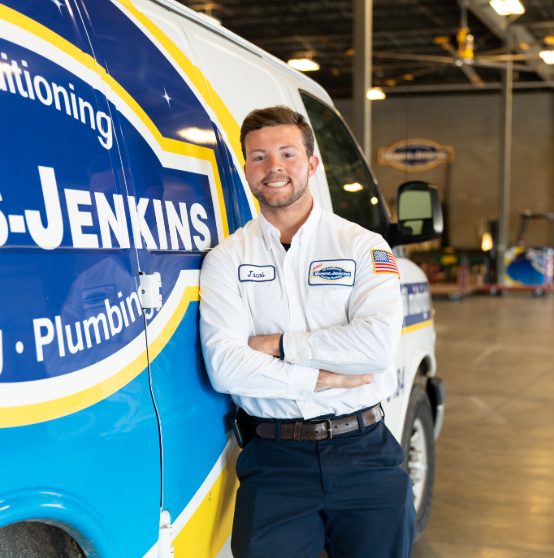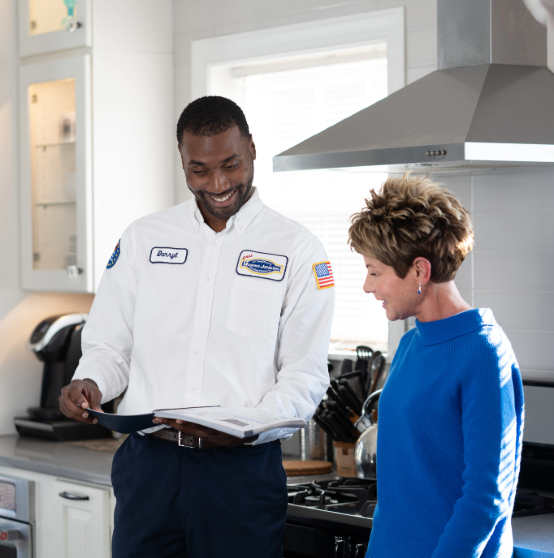Furnace Installation
Keeping Things Warm and Cozy in the Charlotte Area
We’ll admit it, the Charlotte area doesn’t get as cold as many other areas around the country. That doesn’t mean our winters are a paradise though! Unless you dream of bundling up in layers or shivering under a pile of blankets, that is.
When the temperatures start to dip, your home should be the one place where it’s always warm and inviting. At Morris-Jenkins, we provide furnace installation services in Charlotte and the surrounding areas. We’ll help your home get the furnace it needs to stay cozy all winter long. Whether you’re upgrading an old system or installing a furnace for the first time, we make the process as simple and stress-free as possible.

Your Top Choice for Furnace Installation
Before you say anything, we know… shopping for a new furnace can be overwhelming. There are so many factors to consider, so many models to choose from, and so much pressure to make the “right” decision. But that’s why we’re here! We’ll help you find a furnace that fits your home, your needs, and your budget—without the stress.
We pride ourselves on being a local business, and when you call in for service, you’re gonna get the commitment that comes with that. Our furnace installation specialists ONLY handle heating installations, so they’ve built up a lot of knowledge and experience in that area. Their expertise lets them design the perfect heating system for YOU, just like they have for tens of thousands of other homes in Charlotte.
Take the heat off yourself, and let our experts help you pick the best furnace for your home!
Morris-Jenkins Commitment to Quality
At Morris-Jenkins, we believe your furnace installation in Charlotte should do more than just put a new system in place. We make the process straightforward and hassle-free so you can enjoy comfort without the worry:
- Free estimates. We don’t charge to tell you how much we’re going to charge.
- Flat-rate, upfront pricing. No sticker shock here. You’ll always know what you’re going to pay before the installation begins.
- Courteous and friendly staff. From top to bottom, we take after Mr. Jenkins himself.

Is It Time for a New Furnace Installation?
Furnace lifespans vary, and sometimes a breakdown happens sooner than expected. Even if your system seems to be running fine, many homeowners replace their furnace after 12-15 years to improve efficiency, safety, and avoid costly repairs.
There’s no reason to hold onto a furnace that’s past its prime! Our team at Morris-Jenkins will assess your system and help you make the best choice for your home—whether that means repairs, maintenance, or a new installation.
When you work with Morris-Jenkins, we’ll help you consider all factors to find the right system for your home. Here's a few to consider!

How To Choose the Perfect Furnace
The Size of the System
Choosing the right size furnace is crucial. Too small, and it won’t keep your home warm enough. Too large, and it’ll waste energy and cost you more in the long run. We’ll calculate the ideal size for your home to make sure it’s just right.
Efficiency Ratings
Some furnaces are more efficient than others, meaning they use less energy to create heat. Higher energy ratings mean you’ll get more heat for less money, but they can also be more expensive to install upfront.
Modern Features
Thermostats, variable-speed blowers, the list goes on and on. Newer furnaces are often built with more advanced features designed to enhance your comfort and save energy.
Fuel Types
From gas to electric to oil, each fuel type has its pros and cons. We’ll take a closer look at your home’s setup, your heating needs, and your energy preferences to find the furnace powered by the right fuel source for your needs.
We Make It Easy to Install A New Furnace
We don’t have to tell you—going without heat for even a night can be a miserable, bone-chilling experience. You deserve to feel warm and cozy in your home, and that’s exactly what a brand-new furnace can provide. Modern furnaces are designed to deliver consistent heat efficiently, so you’ll never have to worry about icy toes or drafty rooms again.
And with Morris-Jenkins, getting a new furnace is easier than you think. We’re here til midnight every day, so you never pay extra for a late-night or weekend appointment. We get there faster, so you don’t have to wait around in the cold. And when you call Morris-Jenkins, you’ll always talk to a real person in the Carolinas.
We know a new furnace is a big investment, but it shouldn’t be a stressful one. That’s why we offer flexible financing options to help make your home comfortable without breaking the bank. From our friendly service to expert furnace installation, we’ll make sure you get the right system for your home—without the hassle.
Let’s make freezing nights a thing of the past!
Give Your Furnace a Boost With Maintenance
The phrase “If it ain’t broke, don’t fix it” doesn’t really apply to HVAC systems. Even if your system seems to be working fine, not giving your furnace the care it needs can quickly lead to headaches.
Skipping on maintenance can lead to higher energy bills, unexpected breakdowns, and a shorter lifespan for your furnace. Annual tune-ups keep everything running smoothly and help your system perform at its best.
So what do we do during maintenance? We’re glad you asked! Our experts will inspect, clean, and fine-tune your furnace so you can enjoy reliable, efficient heat all winter long. Don’t let “fine” turn into “frozen”—schedule your maintenance with Morris-Jenkins today!

Why Morris-Jenkins for Furnace Installation in Charlotte
We’ve been part of Charlotte and the Carolinas for decades, and we’ve grown by always treating people like neighbors. We’re not a franchise or a national chain—we’re a local company that’s here when you need us.
When you call or text, we’re gonna help right away. No automated menus, no runaround—just real people from the Carolinas, ready to get you taken care of. And when we show up, we come prepared, with fully stocked trucks so we can handle most jobs on the spot.
Morris-Jenkins isn’t just another HVAC company—we’re part of the community. And that’s why so many families in Charlotte count on us to keep them comfortable, season after season.
Install a New Furnace in the Charlotte Area Today
Ready to get started? So are we! Morris-Jenkins offers professional, hassle-free furnace installation services throughout the Charlotte area. Throughout the whole process, we’ll be there to guide you and help you make the best decisions for your home.
Don’t wait for the cold to catch you off guard—get your new furnace installed today and enjoy the comfort you deserve.


